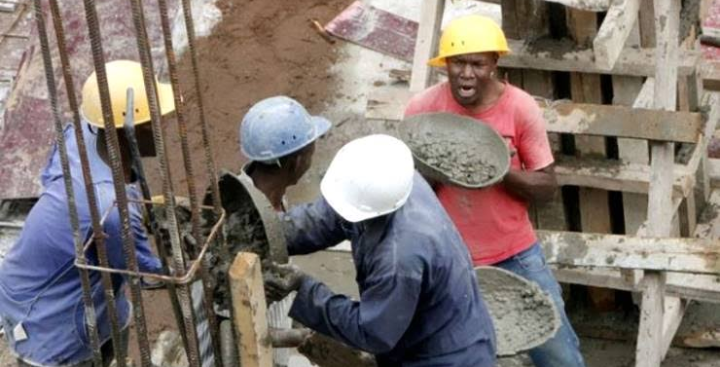Kenya’s construction sector has been facing a severe downturn, as it dropped by 2.9% in the third quarter of 2024.
This marks the worst performance in the last 22 years, showing a deep decline in the industry’s growth.
The poor performance is largely attributed to a combination of rising costs for building materials and significant budget cuts that have affected both private and public projects.

These challenges have caused effects throughout the sector, negatively impacting both production and demand.
One of the most contributors to the downturn is the increase in the cost of construction materials.
In particular, cement consumption has fallen by 10%. Cement is a key component in the majority of construction projects, from residential buildings to large-scale infrastructure works.
As the price of cement rises, fewer projects are being initiated, and many that were already underway are being delayed or scaled down.
This decline in cement use points to a broader issue in the sector, where rising costs are stalling growth and making it harder for developers to proceed with projects.
The reduction in government and private sector spending has resulted in fewer large-scale projects being initiated.
Budget cuts have severely limited the amount of money available for infrastructure and development projects, further weakening the construction industry.

These budgetary constraints have forced many businesses and government agencies to rethink their investments, leading to a significant slowdown in the rate of new construction projects.
Another key factor contributing to the sector’s challenges is the drop in bitumen imports, which fell by 40.9%.
Bitumen, an essential material for road construction, is crucial for the development and maintenance of the country’s transport infrastructure.
With such a sharp decline in imports, many ongoing road projects have been put on hold, and plans for new roads have been shelved.
This drop in bitumen availability has compounded the problems faced by the construction sector, as it directly affects the ability to build and maintain vital infrastructure.
The impact of this poor performance extends beyond just the construction companies and developers.
It also affects the wider economy, as the construction sector is a major contributor to employment and GDP.
With fewer projects, there are fewer job opportunities, particularly for skilled laborers, engineers, and construction workers.
The effect has been felt by various sectors that depend on construction, such as the manufacturing of construction materials, transportation, and even the retail sector.
The government may need to intervene to stabilize the sector.
This could include reducing taxes on building materials, increasing funding for public infrastructure projects, or offering incentives to developers to stimulate growth.
If these issues are not addressed soon, the sector’s downward trend could continue, leading to even greater challenges in the coming years.
The construction sector is critical to Kenya’s development, and it is essential that immediate steps are taken to support its recovery.





















Add Comment